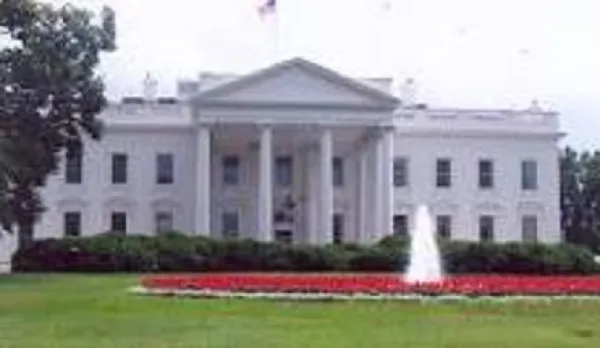Slavery Was Abolished

Book Review: The Residence: Inside the Private World of the White House by Kate Andersen Brower

I have only visited the White House once, in 1975, a year before America’s bicentennial. Of course it was much easier to get in then–pre 9/11–and the public rooms still retained most of the vision and gloss of Jacqueline Kennedy, the First Lady responsible for the restoration of the building in 1962.What I remember most is that the colors of the room are extraordinarily vivid–the Red Room is really, really red–and a sense of wonder that Americans can rubberneck around the home of the President of the United States. This can’t be said about the official homes of most other world leaders.
Radicalization: What Is it Good For?

Radicalization: what is it good for? The song, “War? What is it good for?”, tells us that war is worth “absolutely nothing!” Is radicalization the same? Just something that turns everyday, ordinary people into gun-toting, bomb-throwing terrorists? The media give us that image after every new terror incident here in the U.S. or in Europe involving presumed Islamists. How did these people turn into suicide bombers, gunmen/women, decapitators, torturers, or whatever? Well, it must have been “radicalization.” So then we need to know how that happened. Where and when did their radicalization start? Was it from a web site? Or the influence of a religious leader or friends or family or even a spouse?
Commander in Chief

Maybe it’s the phrase — “commander in chief” — that best captures the transcendent absurdity and unaddressed horrors of the 2016 election season and the business as usual that will follow.
I don’t want to elect anyone commander in chief: not the xenophobic misogynist and egomaniac, not the Henry Kissinger acolyte and Libya hawk. The big hole in this democracy is not the candidates; it’s the bedrock, founding belief that the rest of the world is our potential enemy, that war with someone is always inevitable and only a strong military will keep us safe.
In a million ways, we’ve outgrown this concept, or been pushed beyond it by awareness of global human connectedness and the shared planetary risk of eco-collapse. So whenever I hear someone in the media bring “commander in chief” into the discussion — always superficially and without question — what I hear is boys playing war. Yes, we wage war in a real way as well, but when the public is invited to participate in the process by selecting its next commander in chief, this is pretend war at its most surreal: all glory and greatness and hammering ISIS in Mosul.
Standing Rock Protectors Honoring Principles of Nonviolenent Risistance in the Face of Intentional Provacations

Rigged

The 2016 Republican presidential primary was rigged. It wasn't rigged by the Republicans, the Democrats, Russians, space aliens, or voters. It was rigged by the owners of television networks who believed that giving one candidate far more coverage than others was good for their ratings. The CEO of CBS Leslie Moonves said of this decision: "It may not be good for America, but it's damn good for CBS." Justifying that choice based on polling gets the chronology backwards, ignores Moonves' actual motivation, and avoids the problem, which is that there ought to be fair coverage for all qualified candidates (and a democratic way to determine who is qualified).
What Hillary Clinton Privately Told Goldman Sachs

At first glance, Hillary Clinton's speeches to Goldman Sachs, which she refused to show us but WikiLeaks claims to have now produced the texts of, reveal less blatant hypocrisy or abuse than do the texts of various emails also recently revealed. But take a closer look.
Clinton has famously said that she believes in maintaining a public position on each issue that differs from her private position. Which did she provide to Goldman Sachs?
Yes, Clinton does profess her loyalty to corporate trade agreements, but at the time of her remarks she hadn't yet started (publicly) claiming otherwise.
I think, in fact, that Clinton maintains numerous positions on various issues, and that those she provided to Goldman Sachs were in part her public stances, in part her confidences to co-conspirators, and in part her partisan Democratic case to a room of Republicans as to why they should donate more to her and less to the GOP. This was not the sort of talk she'd have given to labor union executives or human rights professionals or Bernie Sanders delegates. She has a position for every audience.
What Hillary Clinton Privately Told Goldman Sachs

At first glance, Hillary Clinton's speeches to Goldman Sachs, which she refused to show us but WikiLeaks claims to have now produced the texts of, reveal less blatant hypocrisy or abuse than do the texts of various emails also recently revealed. But take a closer look.
Clinton has famously said that she believes in maintaining a public position on each issue that differs from her private position. Which did she provide to Goldman Sachs?
Yes, Clinton does profess her loyalty to corporate trade agreements, but at the time of her remarks she hadn't yet started (publicly) claiming otherwise.
I think, in fact, that Clinton maintains numerous positions on various issues, and that those she provided to Goldman Sachs were in part her public stances, in part her confidences to co-conspirators, and in part her partisan Democratic case to a room of Republicans as to why they should donate more to her and less to the GOP. This was not the sort of talk she'd have given to labor union executives or human rights professionals or Bernie Sanders delegates. She has a position for every audience.
Law Is to Justice as Treaties Are to Native Americans


